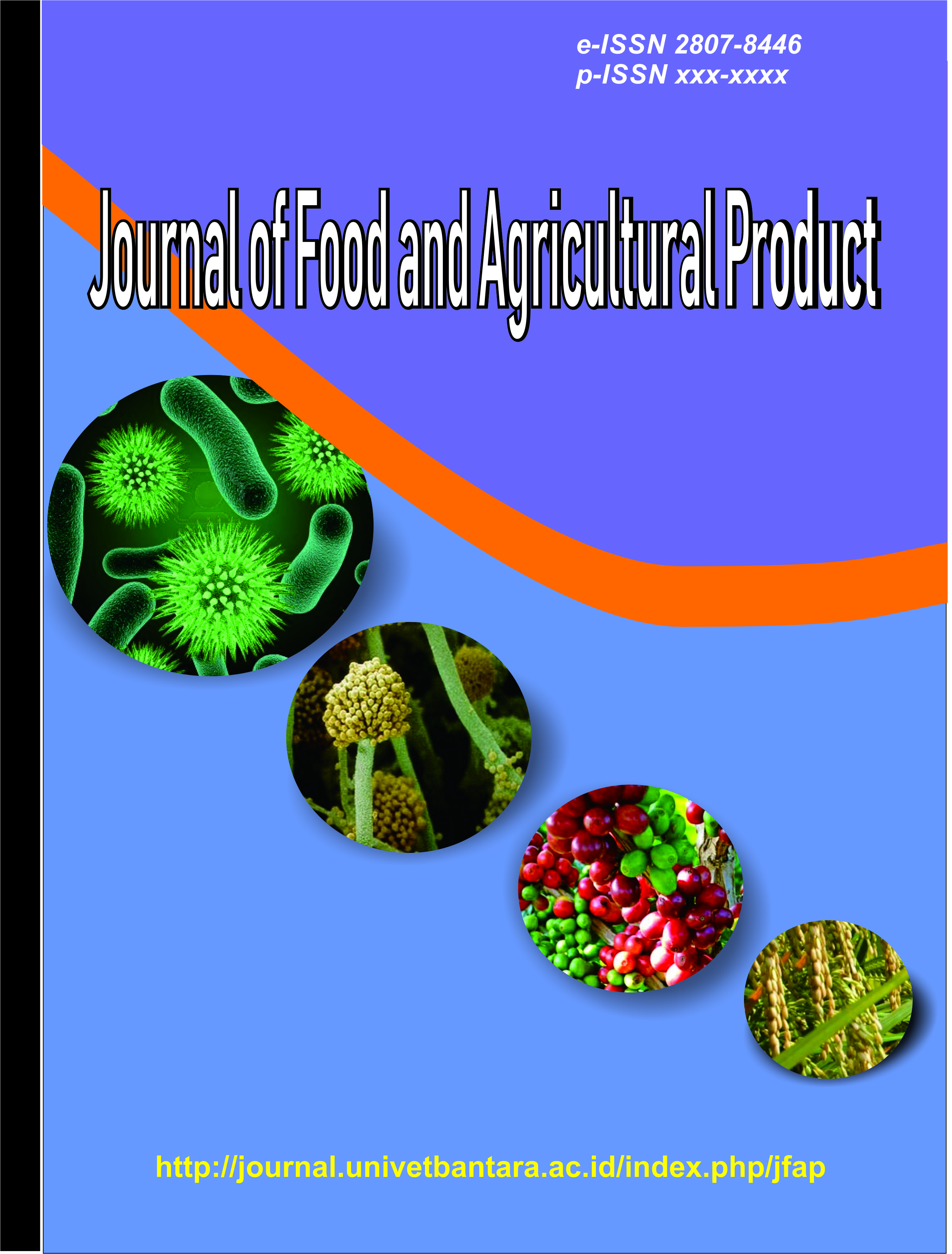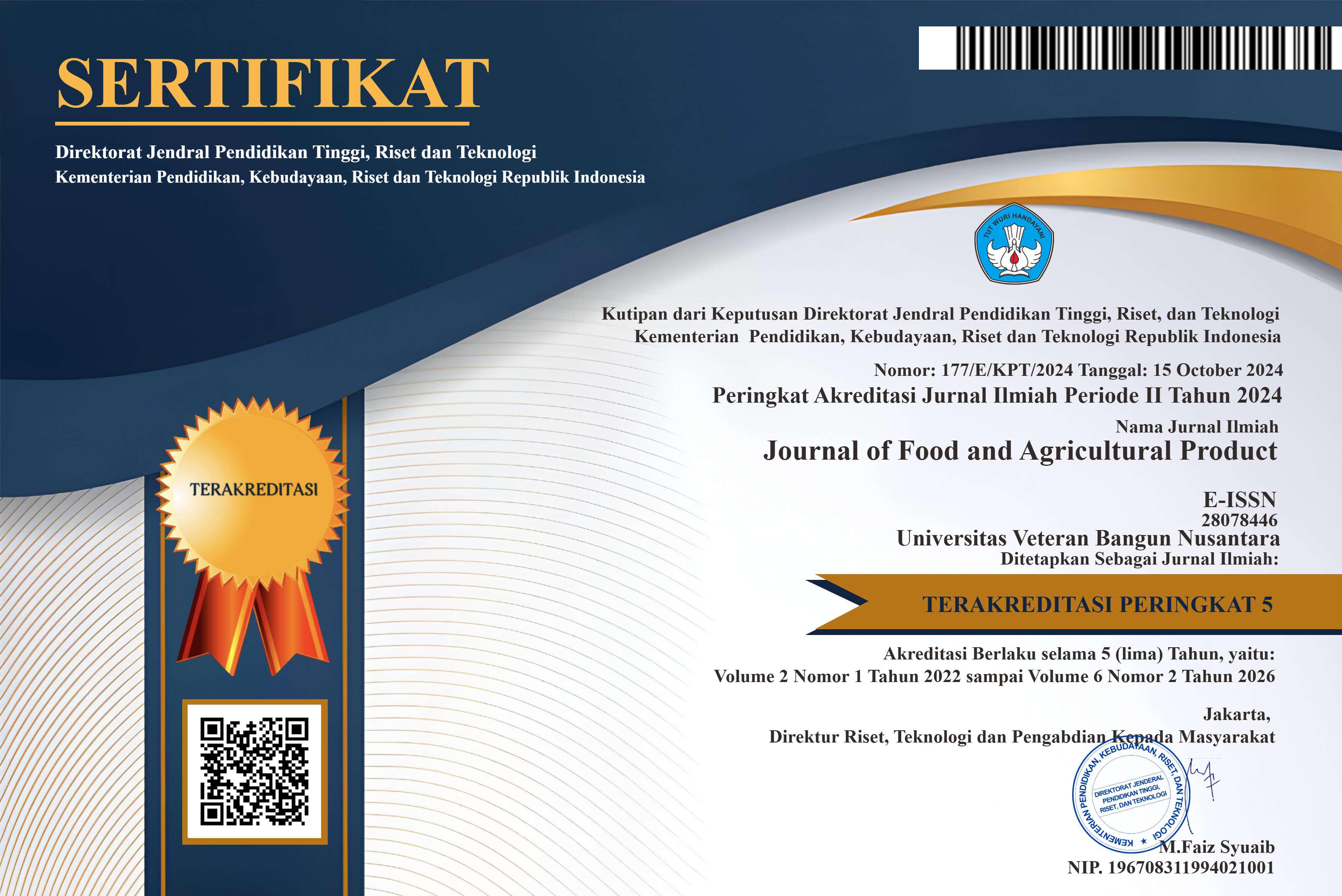The Effect of Fermentation Time on Weight Loss, Protein Content, Organoleptic Tests on Winged Bean Tempeh (Psophocarpus tetragonolubus)
DOI:
https://doi.org/10.32585/jfap.v5i2.6994Abstract
Tempeh is known as a typical Indonesian fermented food that usually uses soybeans as the main ingredient. However, the high dependence on soybean imports has encouraged efforts to find local raw material sources, one of which is winged bean seeds (Psophocarpus tetragonolobus) which have high protein content. This study aims to evaluate the impact of variations in fermentation time on weight loss, protein content, and sensory (organoleptic) quality of tempeh made from winged bean seeds. The study was conducted using a non-factorial Completely Randomized Design (CRD), consisting of four fermentation time treatments, namely 36, 48, 60, and 72 hours. The parameters observed included the level of weight loss, protein content, and organoleptic test results in two stages, namely before and after frying, involving panelists as assessors. The results of observations showed that the longer the fermentation lasted, the weight loss tended to decrease, but was also accompanied by a decrease in protein content. Fermentation for 36 hours produced the highest protein content, which was almost equivalent to the protein content of soybean tempeh. In addition to being an alternative source of vegetable protein, winged bean plants are also known to be rich in antioxidant compounds and essential nutrients that provide health benefits, such as maintaining heart function, preventing diabetes, strengthening the immune system, and supporting digestive function. Based on the results of organoleptic tests, fermentation for 60 to 72 hours provided the best sensory quality in tempeh before frying, while after frying there was no significant difference between treatments. Therefore, it can be concluded that fermentation time has a significant effect on the quality of winged bean seed tempeh, and shows that winged bean seeds have great potential as an alternative to soybeans in the development of tempeh products.
Keywords: tempeh, winged bean seeds, weight loss, protein content, organoleptic test
Downloads
Downloads
Published
How to Cite
Issue
Section
License
Copyright (c) 2025 David Tulloh, Yunika Purwanti, Mohammad Jusuf Randi, Nurwati

This work is licensed under a Creative Commons Attribution-NonCommercial-ShareAlike 4.0 International License.




